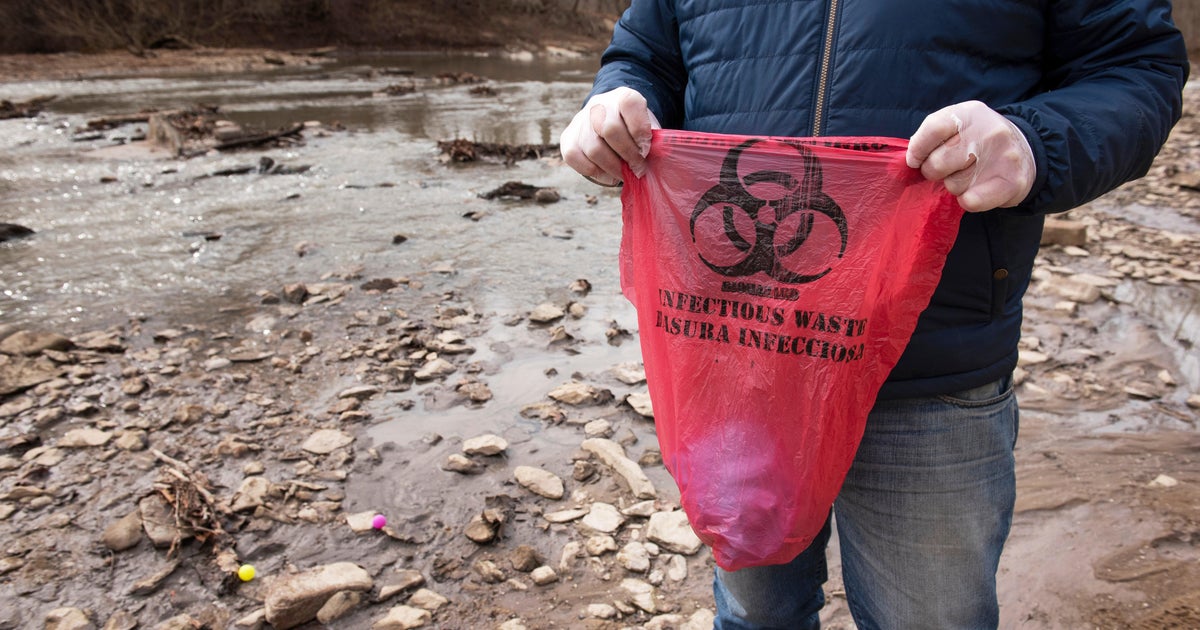Trump signs massive coronavirus relief package
President Trump on Friday signed a massive relief bill to respond to the significant economic fallout of the coronavirus pandemic, after it was approved by a voice vote in the House earlier in the afternoon. The bill is enacted as a record number of Americans have filed unemployment claims and the U.S. topped China as the country with the most confirmed COVID-19 cases.
"I want to thank Democrats and Republicans for coming together and putting America first," Mr. Trump said at the ceremony to sign the bill in the Oval Office. No Democrats were present for the signing, and an aide to House Speaker Nancy Pelosi confirmed she wasn't invited.
The $2 trillion bill passed with bipartisan support by a voice vote, meaning that the presiding member, usually the House Speaker, called for the "ayes" and "nays" from members present on the floor and determined which side prevails. A quorum is assumed in a voice vote, so a bill may pass even if a majority of lawmakers are not physically present.
However, Republican Congressman Thomas Massie of Kentucky objected to the voice vote and called for a recorded vote, which does require a quorum. The quorum, requiring 216 members, was present on the floor Friday, with lawmakers scattered around the chamber and in the visitors' gallery to remain at safe distances.
One-fifth of all members present needed to rise to second Massie's request for a recorded vote, but he did not receive sufficient support. The bill was therefore passed by a voice vote, and the House is now adjourned until March 31.
Since the House was not already in session this week, House Majority Leader Steny Hoyer apprised members Thursday evening that the bill's passage could require their presence in the Capitol, and he urged them to return to Washington. Members traveled by car or in near-empty planes to rush to the Capitol.
Massie told the Courier-Journal Thursday he was having a "hard time" with the concept of a voice vote, since only 218 representatives out of 435 need to be present to have a quorum in the House (because there are five vacancies currently, the number necessary for a quorum is currently 216). He noted that 96 out of the Senate's 100 members were in the Capitol to vote on the Senate measure.
Several House lawmakers are in self-quarantine due to exposure to the coronavirus or because they're showing symptoms of illness. Two House members have tested positive for COVID-19.
Earlier Friday morning, Mr. Trump criticized Massie in two tweets, calling him a "third rate Grandstander" and calling for him to be removed from the Republican Party.
In a third tweet, Mr. Trump called Massie a "disaster for America."
The relief measure passed in a 96-0 vote in the Senate earlier this week after lengthy negotiations between Senate Minority Leader Chuck Schumer and White House officials. The bill expands unemployment insurance, provides direct payments to most Americans and includes hundreds of billions of dollars in loans and grants to corporations, hospitals, state and local governments and more. An amendment proposed by three Republicans threatened to delay the bill's passage, but it failed along party lines.
This bill is the "phase three" legislation to address the pandemic. Mr. Trump has signed two other relief bills and voiced support for this measure.
Kimberly Brown and Rebecca Kaplan contributed to this report.



